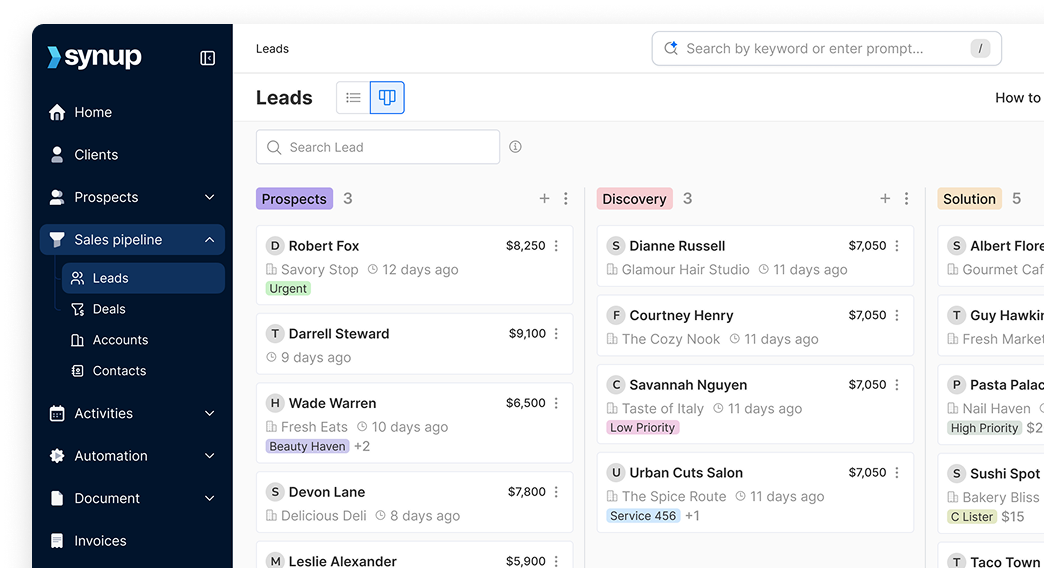How to market my real estate business
Discover effective marketing strategies for your real estate business by enhancing your online presence, utilizing social media, and fostering relationships with clients. These approaches will help you increase brand visibility and attract more potential buyers.

Marketing your real estate business is important to stand out in a competitive market. Whether selling homes, helping people rent, or managing properties, a solid marketing strategy will put you in front of the right audience.
By building your brand, making the most of the digital tools, and connecting with potential clients, you can drive more leads and turn them into lasting relationships.
In this guide, we’ll talk about how to market your real estate business in a way that feels genuine and result-oriented.
TLDR: Marketing Strategies for Real-Estate Business
- Ways to get found easily online by managing your online presence
- Optimizing your website to get leads faster and better
- Tricks and ways in which you can market your real estate business online
- Local businesses that are doing it the right way
- Tools and resources that can help you as a Real Estate Business owner
Get found online easily
Local listings are a key factor in making sure that your potential clients can find your real estate business online. If your business isn’t visible in local searches, you’re missing out on increased sales, revenue, and more footfall.
Here’s how you can make sure you’re easily accessible to people looking for you online:
- Start by claiming your Google My Business (GMB) listing. This is one of the quickest and most effective ways to improve your visibility in local search results. Make sure your GMB profile is fully optimized with accurate business details, this includes your business name, address, phone number, and website.
- Accuracy matters when it comes to local search. Ensure that your NAP (Name, Address, Phone Number) is consistent across all platforms. This includes directories like Yelp, Bing Places, and other relevant local listing sites.
- Incorporate relevant keywords in your business descriptions to improve your visibility. Think about what potential clients might search for when looking for real estate services in your area, such as "real estate agents in [City]" or "homes for sale in [Neighborhood]."
- Client reviews play a significant role in improving your business’s reputation and local search rankings. Encourage happy customers to leave positive reviews on your listings. The more reviews you have, the more credible and trustworthy your business appears to new prospects.

Optimizing your website
A well-optimized website of your digital storefront speaks volumes. Here is a step-by-step guide on how you can optimize your website and make it better than it already is.
Step 1: Research
Start by understanding what your audience is searching for. Use tools like Google Keyword Planner or Ubersuggest to find the most common real estate terms in your area. Think of phrases like “homes for sale in [City]” or “top real estate agents near me.”
Once you have a tentative list, use the same keywords for:
- Page titles and headings
- Property descriptions
- Meta descriptions
Step 2: Optimize for mobile
Most people browse properties on their phones, so your website should look great and function smoothly on any device. Here are some of the questions you can have answered for you
- Is it easy to navigate?
- Are buttons and forms user-friendly?
- Does the site load quickly?
If you notice issues, work on responsive design and compress large files to improve loading speeds.
Step 3: Make it easier for your potential customers to book a call
Make it as easy as possible for visitors to get in touch or take the next step. Add a lead capture form prominently on your homepage or property pages. Keep the form simple, ask for their name, email, and phone number. Bonus points if your form allows them to select a preferred date for viewing or consultation!
Step 4: Speed up your website
Site speed plays a huge role in keeping visitors engaged. Use tools like Google PageSpeed Insights to check your site’s performance.
Here’s how you can make sure to speed up your site:
- Compressing images
- Minimizing unnecessary code
- Enable browser caching
Step 5: Keep Updating Your Content
A static website won’t do you any favors. Regularly update your site with fresh listings, market news, and blog posts. This keeps your audience informed and helps search engines understand that your site is active and relevant.
Online Marketing
Social Media
Social media is a powerful tool for real estate marketing. Platforms like Facebook and Instagram are perfect for showcasing properties, sharing client testimonials, and providing tips on home buying and selling.
Local Services Ads
Local service ads on Google can help your real estate business show up at the top of search results when someone looks for services like "real estate agents near me." Use location-based targeting to ensure your ads only reach clients in your service area. Add extensions like call, location, and review extensions to increase your ad’s click-through rate.
Creating engaging content
Content marketing is a long-term strategy that pays off. Develop a content plan that answers common questions from home buyers, sellers, and renters. Write blog posts, create videos, and share helpful guides. Repurpose this content across your website, social media, and email newsletters. Make sure you’re using the right keywords to attract organic traffic.
Video Content
Video is one of the most engaging forms of content. Create virtual tours, property walkthroughs, or client testimonials in video form. Share these videos on your website, YouTube, and social media platforms. Optimizing your video content for search engines can help you rank higher and get found by potential clients looking for real estate in your area.
Offline Marketing
Local partnerships & sponsorships
Building relationships in your community can drive business. Partner with local businesses like moving companies, mortgage brokers, and home improvement contractors to create referral networks. You can also consider sponsoring local events, sports teams, or community organizations. This increases your visibility and establishes you as a trusted part of the local community.
Build Strong Relationships
Word of mouth is powerful, and building strong, long-term relationships with your clients can lead to repeat business and referrals. Stay in touch with clients through email marketing, follow-up calls, and social media. Loyalty programs or referral incentives can encourage clients to come back and recommend your services to friends and family.
Encourage Referrals
Referral programs are a great way to make the most out of your existing client base. Offer clients rewards like discounts or gift cards for successful referrals. Promote your referral program through email, social media, and during your interactions with clients. The more you encourage your happy clients to spread the word, the more your business will grow.
Content Ideas

Virtual Property Tours
Take your audience on virtual walkthroughs of your latest listings. Highlight unique features like a cozy fireplace, spacious backyard, or modern kitchen. Use videos or 360° tours to make the experience immersive.
Before-and-After Staging
Show the transformation that professional staging can bring to a property. Pair these posts with captions explaining how staging helps homes sell faster and for a higher price.
Listing of the Week
Dedicate a weekly post to highlight one standout property. Share a carousel of high-quality images, a short description, and a clear call-to-action like “Schedule a viewing today!”
Neighborhood Spotlights
Share posts about the best neighborhoods in your area. Include details like school ratings, parks, restaurants, or proximity to major hubs. Add a personal touch by sharing why you recommend the area.
Community Events
Keep your audience informed about local events such as farmer's markets, festivals, or charity drives. This positions you as someone who knows and loves the community.
Hidden Gems
Highlight lesser-known spots in the area, like quaint cafes, hiking trails, or family-friendly hangouts. These posts can resonate with locals and newcomers alike.

Here’s what a virtual property tour can be like. Source: https://www.3dvista.com/en/project/real-estate-virtual-tour/
1. LoopNet
If you’re in the commercial real estate space, LoopNet is a must. It’s one of the largest platforms for listing office spaces, retail properties, and industrial locations. Plus, it connects you with serious buyers and investors, making it a go-to for expanding your network.
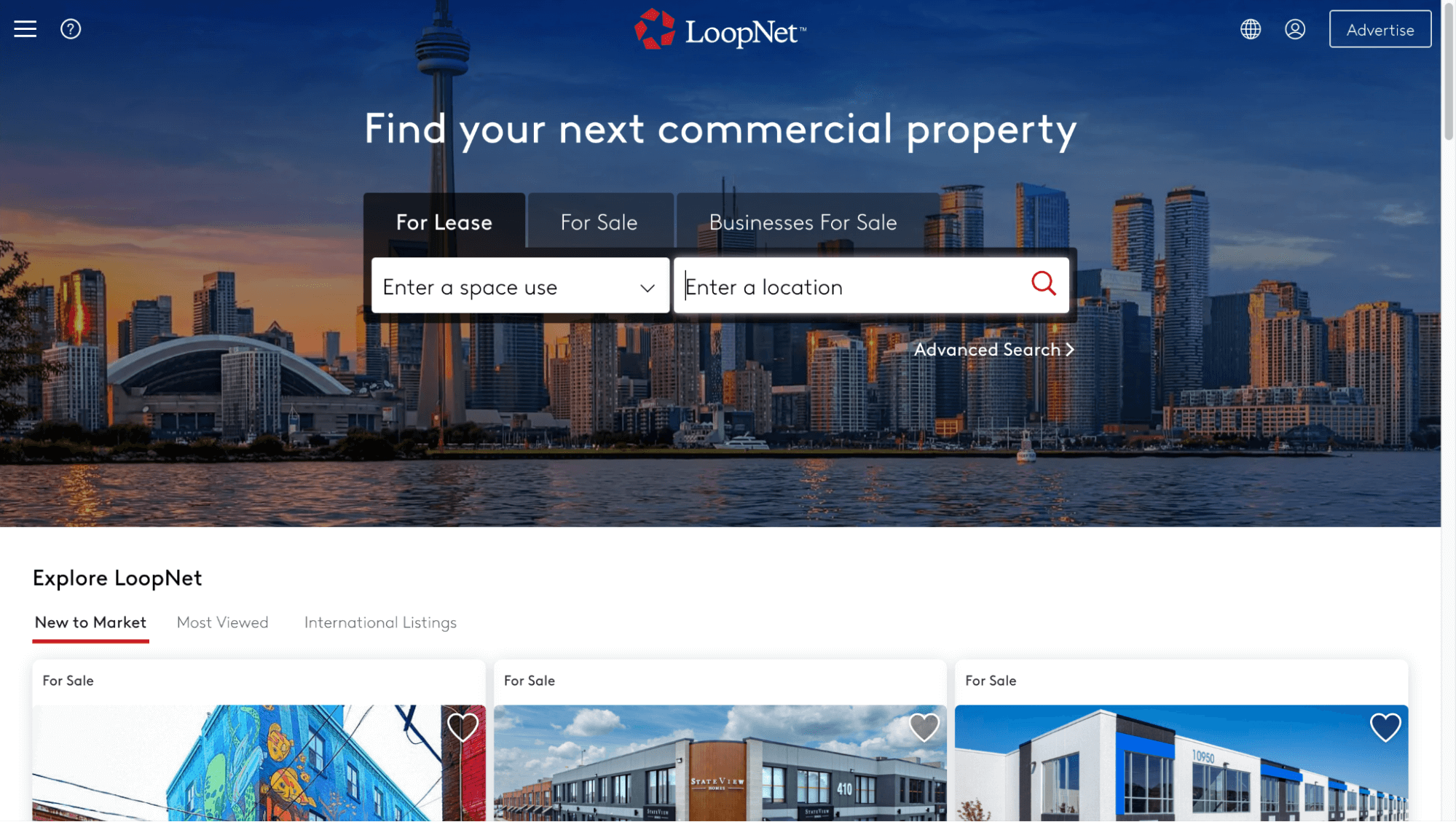
2. CREXi
Think of CREXi as the digital marketplace for commercial real estate. It’s designed to help brokers and agents market their properties, manage their listings, and close deals faster. If you’re looking to streamline your commercial property sales, this platform should help.
Check out CREXi

3. Land.com Network
Got land to sell? The Land.com network includes platforms like LandWatch, Land And Farm, and Lands of America, giving you a broad audience for anything from rural properties to agricultural land. It’s perfect for tapping into buyers looking for undeveloped spaces.

4. Avail
For residential landlords, Avail is a game-changer. It simplifies property management by offering tools to list your rentals, screen tenants, and handle leases all in one place. Whether you’re managing one property or several, this platform has you covered. Learn more about Avail.
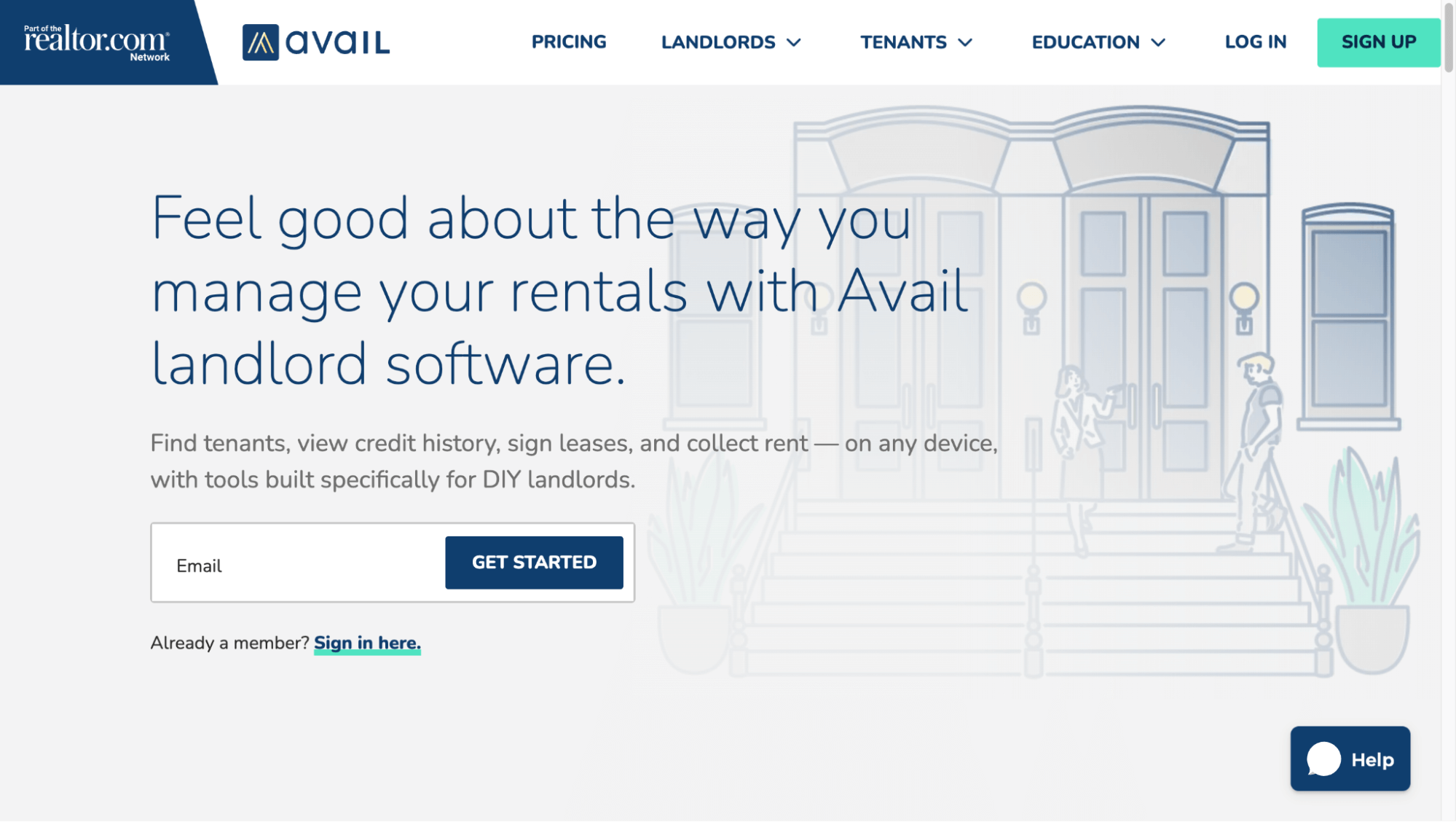
5. Apartments.com
This one’s a no-brainer for rental properties. Apartments.com is a trusted platform for connecting with renters, especially if you’re listing multi-unit residential properties. It’s ideal for reaching tenants who are actively searching for their next home. Check out Apartments.com

Reviews
Reviews are the backbone of trust in the real estate business. When potential clients are looking to buy, sell, or rent a property, they often rely on reviews to gauge the credibility and expertise of an agent or agency. A positive review can be the deciding factor that sets you apart from the competition.
They also serve as social proof, showing potential clients that others have had a great experience working with you. Whether it’s about how quickly you helped sell a property, your knowledge of the market, or your approachable demeanor, reviews highlight what you bring to the table.
Additionally, reviews improve your online visibility. Platforms like Google, Zillow, or Yelp use reviews as a factor in their search algorithms. The more positive and consistent your reviews are, the higher you’re likely to appear in local searches.
Encouraging clients to leave feedback also opens the door for valuable insights into your services. Constructive feedback can help you identify areas for improvement and show clients that you care about their experience.
For example, Zillow lets agents show client reviews on their profiles. The more positive reviews an agent has, the more visible they become in search results, which leads to more leads. The platform boosts agents with good reviews, making them stand out.
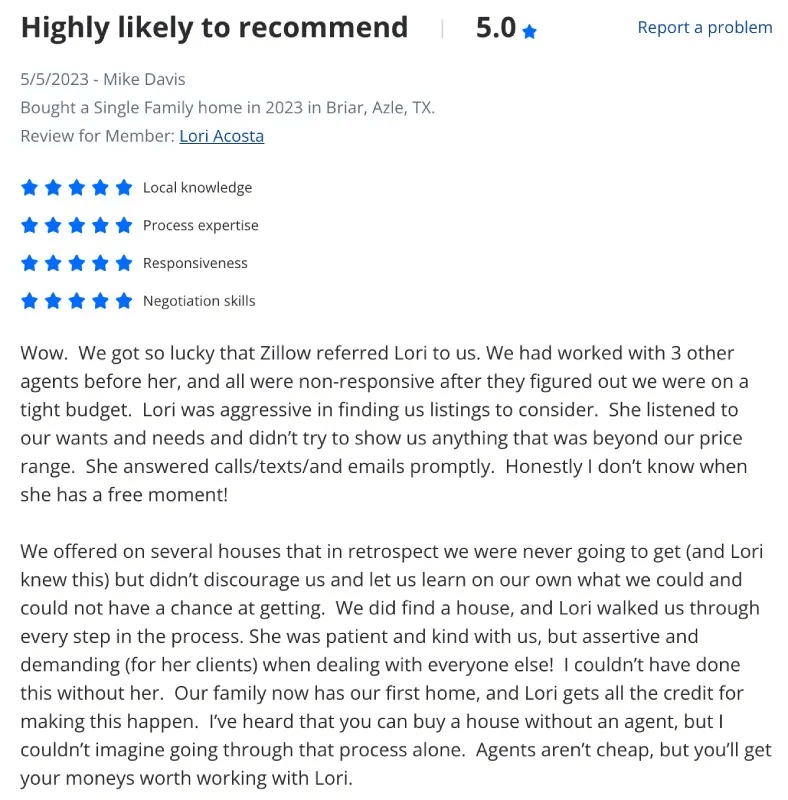
Tools that can help
- Synup
Synup is a local marketing platform that simplifies how real estate businesses manage their online presence. From ensuring accurate local listings to monitoring reviews and improving search visibility, it helps agents and agencies connect with the right audience. With tools for SEO, social media, and analytics, Synup ensures you stay visible, trusted, and ahead of the competition.

Features
- Helps keep your business info consistent across Google, Yelp, and more.
- Track and respond to reviews to build more credibility.
- Use local keywords to rank higher in searches.
- Get insights into what’s driving leads.
- Schedule and manage posts across various social media platforms.

- Cloud CMA
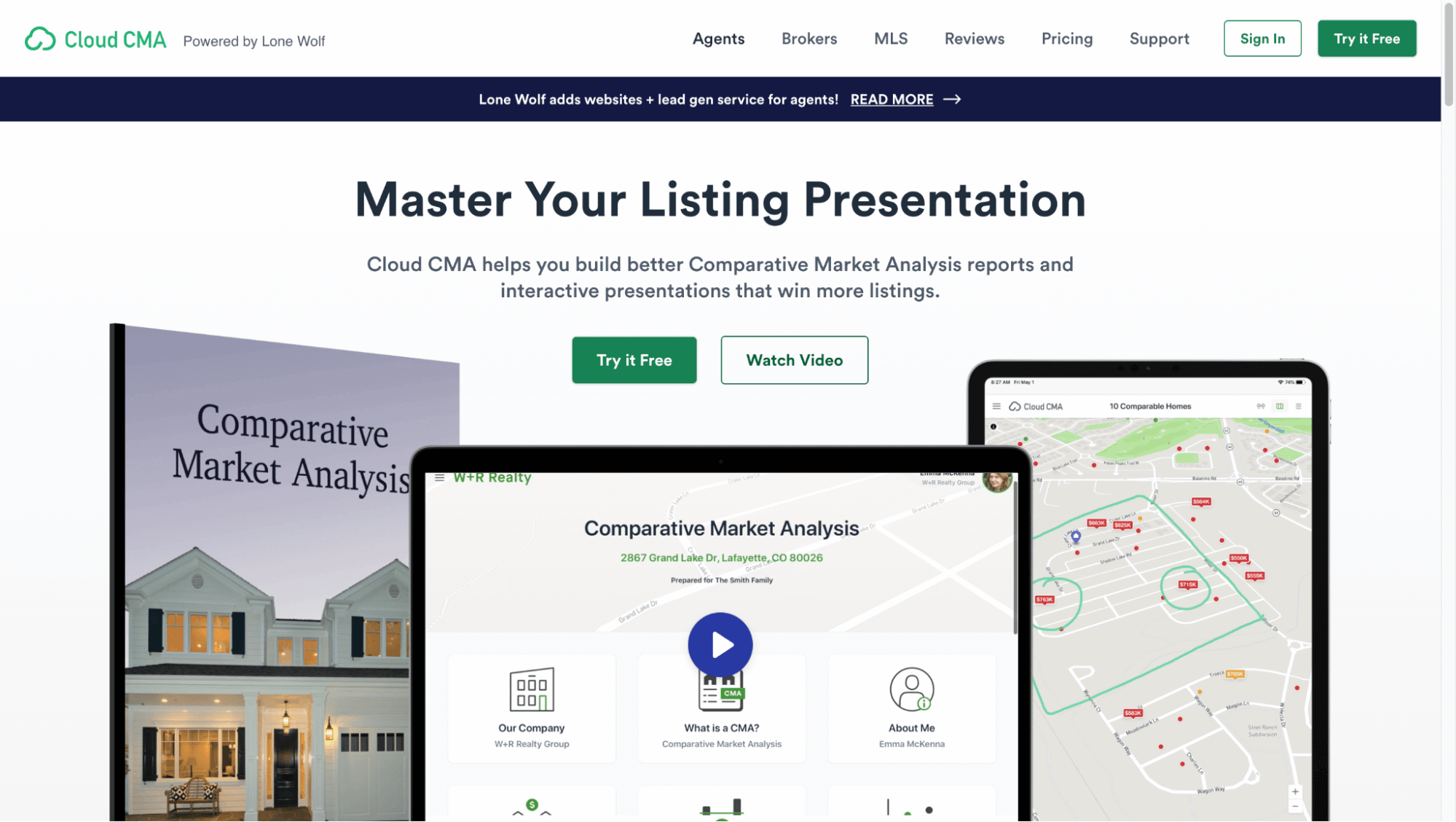
Cloud CMA is a tool used by real estate agents to create custom property reports and presentations. It helps businesses stand out by offering visually appealing comparative market analysis (CMA) reports to clients, enhancing the way agents present properties.
- Real Trends
Real Trends is a go-to resource for real estate professionals looking to stay ahead in the game. It provides everything from market research and industry rankings to insights into the latest trends shaping the real estate landscape. Whether you’re trying to understand market shifts, keep an eye on top-performing agencies, or plan your next strategy, RealTrends helps you with data and insights that you can use.
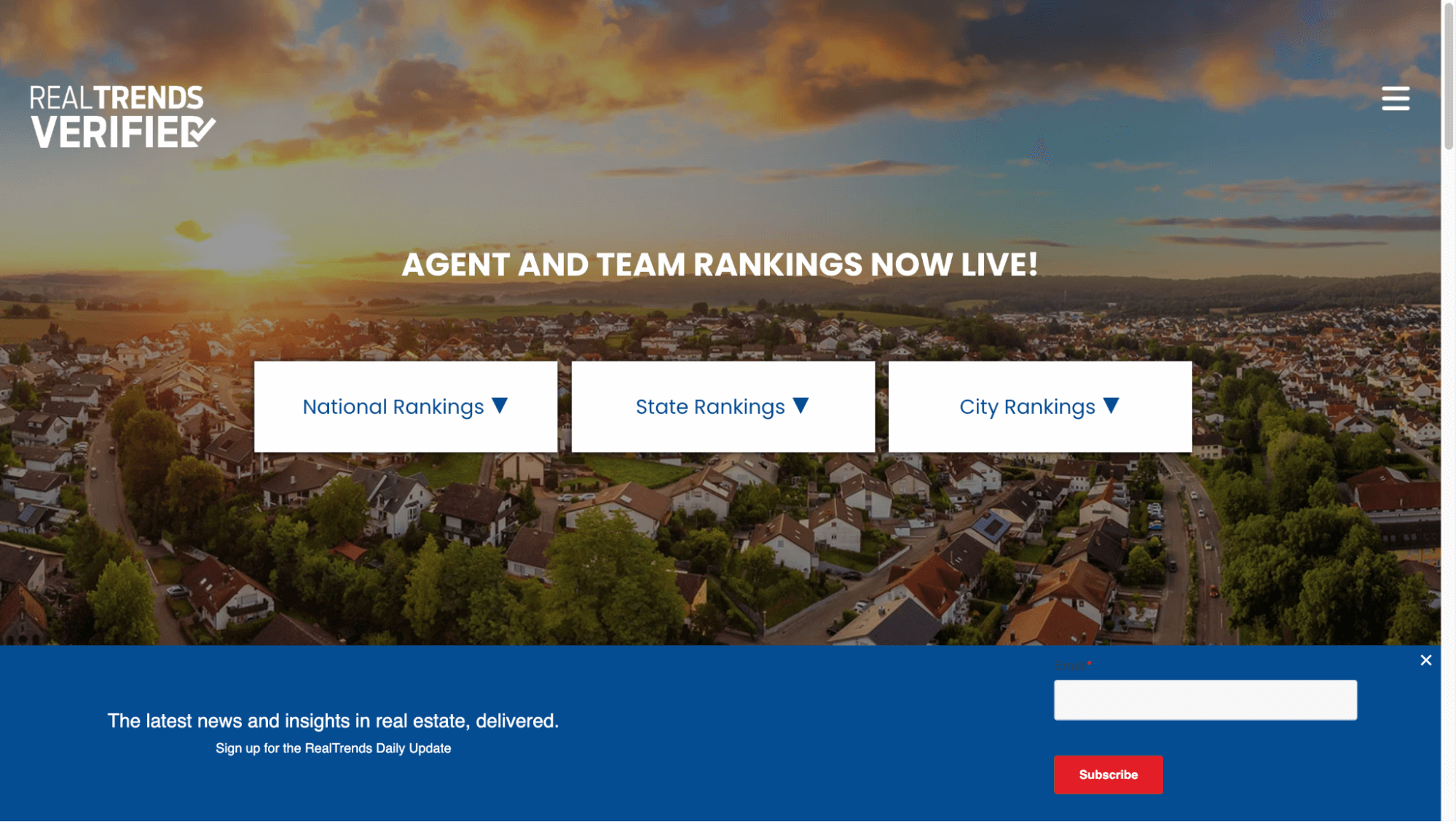
- The Close Blog
The Close blog is a practical resource for real estate agents and brokers, offering advice you can actually use. It covers everything from lead generation and marketing to tips for building a successful career in real estate. Whether you’re just getting started or looking to grow, The Close provides straightforward strategies to help you make better decisions and take your business to the next level.

- Tom Ferry’s Resources
Tom Ferry is a well-known name in the real estate industry, offering a wealth of resources to help agents grow and succeed. His platform provides free tools, guides, and actionable insights tailored to meet the needs of both new and experienced real estate professionals.

In Conclusion
Marketing your real estate business effectively boils down to understanding your audience, leveraging the right tools, and staying consistent in your efforts. It’s not just about being present on every platform; it’s about being present in the right way, offering value, building trust, and creating connections that turn potential leads into loyal clients.
How to market my Real Estate Business - FAQs
What type of marketing is best for real estate?
A mix of online and offline strategies works best. Use social media, local SEO, and digital ads to expand your reach, while open houses, networking, and direct mail help you connect with clients on a personal level.
How can I market myself as a real estate agent?
Build a strong personal brand with a professional website, active social media, and glowing client reviews. Share valuable insights, stay consistent, and focus on building trust and connections in your community.
What are the four Ps of marketing in real estate?
The four Ps which are, Product, Price, Place, and Promotion are all about showcasing properties effectively, pricing them right, targeting the right locations, and using creative promotion to draw attention and close deals.
How is real estate marketing done?
It’s about creating standout property listings, using platforms like Zillow and Instagram, hosting open houses, and building relationships through email campaigns and local partnerships. It’s all about being visible and approachable.




